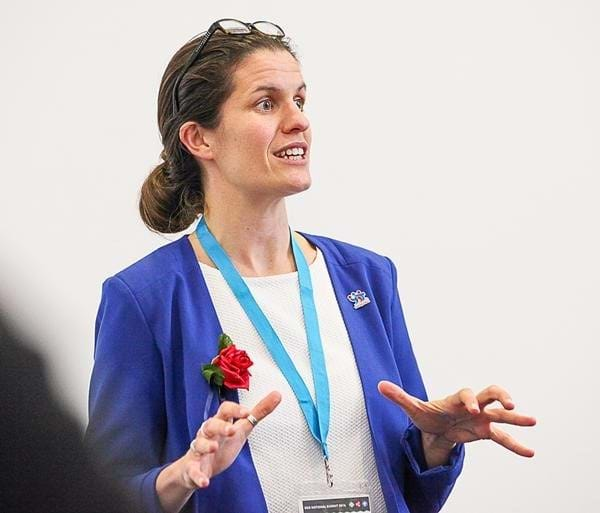
Emily Reynolds, National Programme Director for the Youth Sport Trust attended the most recent session of the All Party Parliamentary Group (APPG) on Education, exploring how outdoor learning can support children’s physical and emotional wellbeing. Here, Emily shares her experience.
This generation of children and young people is unhappier, unhealthier and more distracted than previous generations. Less than half (47%) of children are meeting the UK’s Chief Medical Officers’ guidance that they should be physically active for at least 60 minutes each day. The onus is on policy makers to deliver change so we can empower all children to access the benefits that come from being physically active.
This is an issue that transcends party politics and the recent APPG for Education session provided an opportunity to explore why and how we can create change and build active futures. APPG's bring together Parliamentarians from different parties around shared interests, receive evidence from experts, hear from those with different lived experiences and inform policy development.
This is an issue that transcends party politics and the recent APPG for Education session provided an opportunity to explore why and how we can create change and build active futures. APPG's bring together Parliamentarians from different parties around shared interests, receive evidence from experts, hear from those with different lived experiences and inform policy development.
The purpose of this session was to explore the benefits of outdoor learning at school. Statistics show children continue to spend less time outdoors at school than before the pandemic, despite research from the charity Learning Through Landscapes finding that 97% of teachers believe outdoor playtime throughout the school day is critical for children to reach their full potential. We urgently need to make education settings and the school day more active.
Together Ali Arber (Wellbeing Lead from Insignis Academy Trust), Jon Smedley (Teach Active CEO), Mike King (Chair of Trustees, Institute for Outdoor Learning) and I were able to articulate the many and varied benefits that come from being physically active. However, it’s clear what we’re currently doing isn’t working and too many children are missing out as a result.
Building on the proposals put forward in the Youth Sport Trust’s recent manifesto for action – shaped by leading voices from education, sport, physical activity and health and wellbeing – I explained the vital role that schools can play in contributing to all children achieving 60 active minutes a day. Whilst this includes PE and school sport – and we believe PE should be made a core subject to give every child a guaranteed 2 hours a week - there is also a role for quick bursts of activity, interjecting and embedding physical activity throughout the day.
I highlighted the need for a coordinated response to the mental health crisis facing young people, including the importance of taking preventative action. In our view, by putting wellbeing at the heart of education, we can support and equip children to better manage their mental wellbeing, capitalising on the role physical activity can play in driving improved mental health. This should include using National Professional Qualifications to embed wellbeing principles amongst teachers and school leaders, aligned with a new national measurement for children and young people’s wellbeing that can track progress, and help to target investment and interventions.
Finally, I explained that too many children lack safe spaces to play freely and have fun, which supports socialisation and creativity as well as providing a way to be active. Changing this requires action now, to guarantee play sufficiency for children in every community. Longer term progress necessitates the embrace of active design principles, informed by youth voices to help build communities of tomorrow that deliver daily opportunities to be active, supporting happier, healthier lives.
It was great to set out to politicians the challenges facing children and young people, as well as to explore some of the potential ways forward and how increasing opportunities to be physically active can positively affect children’s wellbeing and life chances. Our hope is that political leaders of all colours will embrace the power of physical activity to act as a low-cost, high-impact intervention that can help make progress against a number of different challenges and we will continue to make that case in the months ahead.
